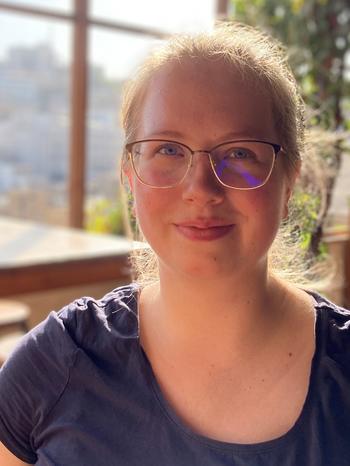Constanze Fertig

(Einstein Doctoral Fellow)
Muṣallā sites and praying practices among Jordanian Bedouin (1950–today)
Muṣallā sites and praying practices among Jordanian Bedouin (1950–today)
Where do you pray when you are surrounded by desert? For centuries, nomadic Muslims have built and used muṣallās (sg. muṣallā) to perform their prayers. These ‘desert mosques’, sometimes a mere ground line of stones and gravel, have lost their significance inasmuch as nomads became sedentary. In my thesis, I approach questions of religious practice among Jordanian Bedouin through a case study on the use of muṣallās since the middle of the 20th century. On the one hand, I want to visit muṣallā sites to collect information on their local context, as well as past and present use. In order to locate as many sites as possible, I am adopting a social media based approach to citizen science. On the other hand, I want to conduct biographical interviews with contemporary witnesses to ask questions about their past and present use of muṣallās: How did it change in the course of their lifetime, and has their notion of a pious Muslim changed as well? My thesis will delve into anthropological theories of prayer, as well as its incorporation into a nomadic pastoralist lifestyle. I will also discuss notions of sacred space, of temporal architecture, and of theological (de-)legitimation of religious practices.
Erstgutachterin: Prof. Dr. Birgit Krawietz
Zweitgutachter: Samuli Schielke

